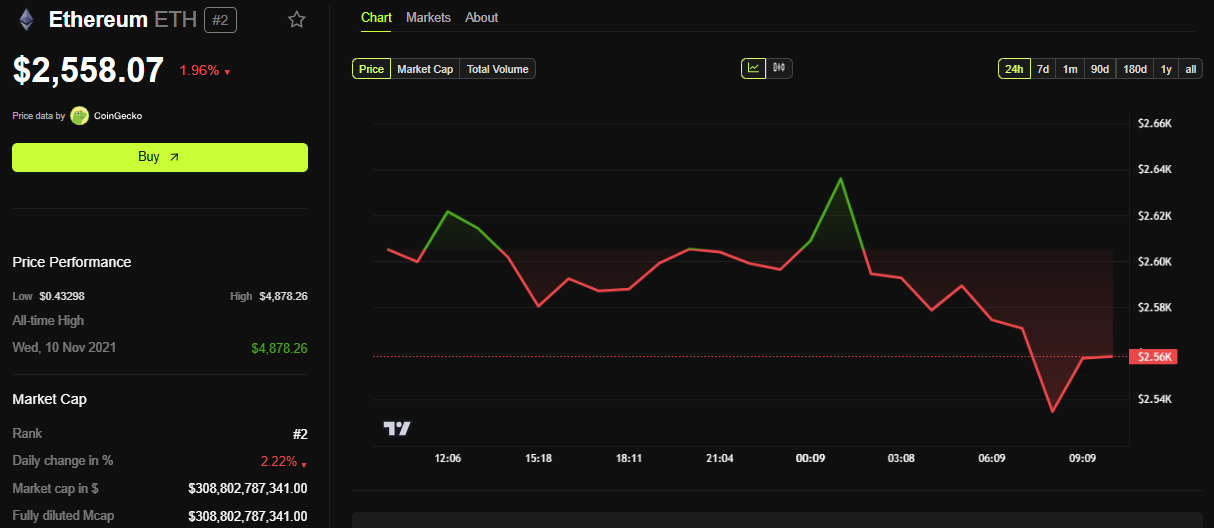Ethereum Foundation Drops $1T Security Bomb—Wall Street Spills Coffee
Move over, T-bills. The Ethereum Foundation just unveiled a trillion-dollar crypto security play—and TradFi’s scrambling to decode it.
How it works: Details are sparse, but insiders confirm this isn’t another memecoin masquerading as innovation. The foundation’s leveraging Ethereum’s smart contract backbone to create institutional-grade instruments.
Why it matters: This could be the Trojan horse that finally forces legacy finance to take blockchain seriously—or just another ’Web3 breakthrough’ that vaporizes faster than a DeFi rug pull. Either way, the SEC’s lawyers just billed another 2,000 hours.
Ethereum Foundation Rolls Out Trillion-Dollar Security
Announced on May 14, the 1TS program aims to elevate Ethereum’s security standards to a level where billions of people can feel confident holding $1,000 onchain, and institutions, a trillion dollars in a single smart contract.
“Ethereum must achieve Trillion Dollar Security – a world where: – Billions of individuals feel SAFE holding $1000 onchain, collectively amounting to trillions of dollars – Individual orgs are comfortable storing $1 trillion inside a single contract or application,” EF wrote in a post.
Led by Fredrik Svantes and Josh Stark from the ethereum Foundation, an elite panel of security leaders backs the Trillion Dollar Security initiative. Among them are executives from Security Alliance, Etherealize.io, and Sigma Prime.
Together, they aim to overhaul Ethereum’s security model with a three-part strategy. Specifically, they will identify current vulnerabilities, execute improvements based on prioritized risks, and improve communication around Ethereum’s safety guarantees.
The launch of 1TS comes at a critical time. Ethereum recently rolled out its Pectra upgrade to streamline wallet usability and validator efficiency. Yet despite technical progress, Ethereum faces growing pressure from within and outside its ecosystem.
Ethereum Ecosystem Value Faces Mounting Risks
Firstly, Ethereum is losing developer mindshare. Critics say the network’s strategy has become fragmented, with an overreliance on hackathons and Layer-2 innovations failing to inspire long-term builder commitment.
Compounding the issue, rival networks like solana are winning over developers with simplified programming environments and aggressive ecosystem support. This exodus of talent has added to Ethereum’s narrative crisis, a term now circulating among industry observers.
Once championed as the backbone of decentralized finance (DeFi) and Web3, Ethereum’s identity has become diluted between ambitions of being a smart contract hub, a store of value, and a modular settlement layer.
Vitalik Buterin has acknowledged the confusion, recently urging Ethereum to adopt Bitcoin’s simplicity and reduce its protocol-level complexity.
1TS could be Ethereum’s answer to these challenges. Since its inception, Ethereum has settled trillions of dollars in on-chain value. It also boasts a growing share flowing through Layer-2 networks and DeFi protocols. With this, security remains Ethereum’s highest-value promise.
The 1TS initiative could address these technical gaps, potentially rebuilding trust and reanchoring Ethereum’s brand around resilience, safety, and institutional-grade confidence.
Still, the Ethereum Foundation has made it clear this will be a collaborative effort. In the coming weeks, the team plans to engage with organizations across the ecosystem to gather feedback and accelerate progress.
“We need your help to improve Ethereum’s security. Over the coming weeks, we’ll contact orgs around the ecosystem to gather feedback and ideas,” EF concluded.
As market sentiment shifts and competitors tighten the gap, Ethereum’s future may hinge on whether it can deliver what 1TS promises. This could solidify its helm as the most used blockchain and elevate it as the most secure, trusted, and scalable foundation for the digital economy.

Despite the Ethereum Foundation’s ambitious plans, the ETH price has fallen by almost 2% in the last 24 hours. As of this writing, it was trading for $2,558.

